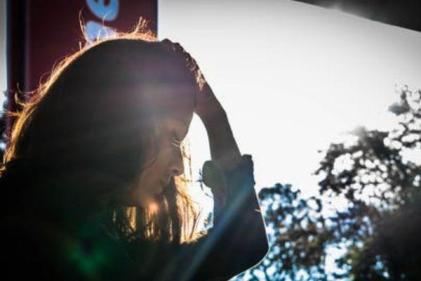Post natal depression is a common problem after having a baby. It is important that mums are aware of it. 'Baby blues' occur in the first week, and generally clear up after a week or two. Baby blues is generally a mixture of weariness, exhaustion and tears.

A continuing low mood, and feelings of guilt and inadequacy can continue beyond this first week or two, and worsen. This is what is considered to be post natal depression. It is thought as many as one in six mums experience post natal depression, although the figure could higher. Mums tend to minimise or hide these feelings from family and friends as long as they can, and will often deny that they are depressed. Many have an unfounded fear that people will judge them or that social services will become involved. Many think they are alone in suffering with this, whereas nothing could be further from the truth.
Health workers have a responsibility to always ask women how they are doing after they have a baby and how their mood is. GPs and public health nurses see women quite frequently after delivery, and at their baby’s two-week check and their own six-week check. Vaccination visits also give us a chance to keep an eye on mums who may be struggling. Often, it is not the mum who first realises there is a problem, but a member of their family, or their nurse or doctor.
Panic attacks, poor sleep, excessive worrying, low appetite, poor concentration are all common along with feeling low and teary. Sometimes people find it hard to distinguish from the sheer exhaustion of a new baby.

There are certain groups of women more likely to experience post natal depression - women far from their friends and family, women with a history of depression, and also women who have had a traumatic birthing experience. Women are also more susceptible if they have gone through a recent stressor such as bereavement or a house move.
If you think you may have post natal depression the first thing I say to you is: it is common and it is fixable. You need to talk about it and seek help; your GP can tell you what is available in your area. If you have mild symptoms, we can refer you to local support groups or counsellors. If you have severe symptoms, we can prescribe medication if required. There are certain medications for depression that are safe when breastfeeding and, if needed, they can be used.

General advice would be to get out daily for a walk, or try to join a group so you have some more interaction with mums. I find quite often now, working mums may have loads of friends who work, but few available during the day, and this adds to the feelings of loneliness. Eat well and take advantage of any nap your baby takes to get some rest for yourself. Plan on doing something nice for yourself every day, from taking a bath to meeting a friend for coffee.
Remember: Post natal depression is a temporary illness, and asking for help is your first step to getting better. In the meantime, don’t be too hard on yourself. You have just had a baby - there is no need to prove you are superwoman. Try not to play the “who is the most exhausted game” with your other half - it is a hard time for both parents, and sleep deprivation brings out the worst in us all. If you have visitors, give them a job - people like to feel helpful and useful, especially grandparents.
Keep in mind every day that this will get better, and seek help from your doctor.






